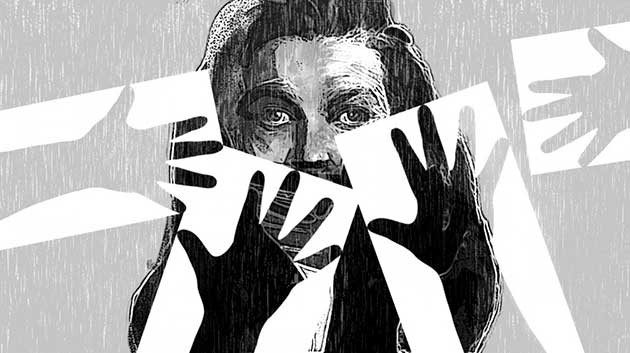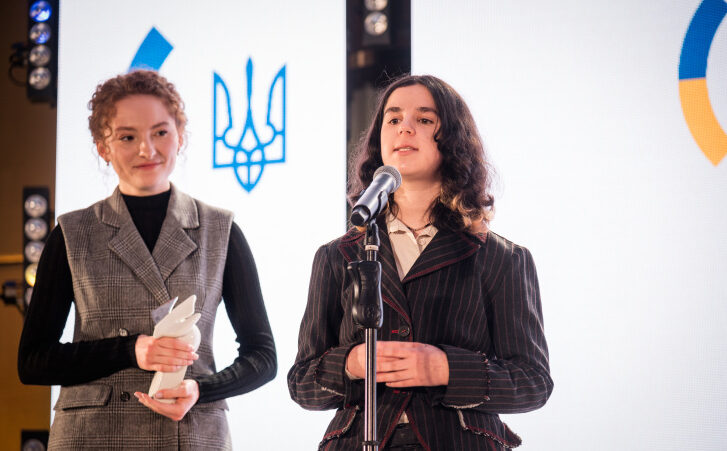
Georgian Women Are Fighting for Gender Equality
I remember wondering, what a term Gender Equality mentioned in the school textbook meant. The teachers have not talked to us about it. I came across the definition in one of the footnotes of the textbook, according to which it is an equality between men and women. But why are not we equal or how unequal we are? My female classmate got married at the age of 13, when we were 6th graders. Soon she delivered a baby. On the one hand, our math teacher said in a praising way that she, at least, found her purpose in life. On the other hand, however, she was expelled from school. My mother explained to me that there is no place for a married woman beside the school-kids. The age suddenly did not matter, as long as you were married. All of that was happened in the center of Georgia’s capital city, Tbilisi. The other time one of my classmate girls asked me, what would I do, if I had a boyfriend, who would ask me to break up with one of my friends or leave him. I responded intuitively that if he respected me, he would not want me to lose my friends. At the university, one of my criminal law professors would make fun of the questions and comments made by women students, while responding quiet seriously to the guys. Though all the girls were talking about this, none including me has complained. Upon my graduation, I bitterly regretted not speaking up then after seeing one of the graduate level students actually filed a lawsuit against the university because of the sexist attitude towards her master’s thesis.
 Photo credits: Fahmida Hasan
Photo credits: Fahmida Hasan
Today women face many barriers and challenges including Gender based violence, child marriage, economic disadvantages and exclusion from decision-making and not only in the rural or in the communities traditionally perceived as conservative. During one of my visits to Kutaisi as of Georgia’s Youth Representative to the United Nations in fall of 2019 I heard a story of a girl, who wanted to become an opera singer, but was forced to study business, because her family did not want her, as a young woman, to move to another city and live there alone. Only 20% of the leadership positions both, in public and private sectors are held by women. Women make 2/3rds of men’s income in the formal economy. Very few women own real estate. In Georgia the real estate/immovable property is mostly inherited by male offspring. Women are supposed to get married and live with their husbands. Though more women graduate with the university degrees, the female unemployment is still higher. The 5th of unemployed women said, they do not work, because their husbands do not want them to. Women politicians are under a much more intensive scrutiny. Women with disabilities have not even been in the Parliament or in the Georgian government at all, while at least 3 visibly disabled men have been. One might think that women with disabilities should be present and represented both by the women’s and disabled persons’ movements, but it is exactly the opposite. According to a research conducted by the Platform for New Opportunities in 2016, only 1 disabled woman works in all surveyed women’s organizations.
Despite all the challenges women face in Georgia, the 8th of March, the International Women’s Day is perceived by many just as a day of flowers, restaurant gatherings and gifts for women, as a happy holiday. This is a legacy from the Soviet times, when talking about the problems and making the demands to the state was prohibited. According to the official ideology, all inequalities have been abolished, so why not to celebrate. To end, though, on a positive note, few legislative measures have been taken in the recent years to address some of the women’s rights issues. For instance, the mandatory gender quotas were finally introduced for the parliamentary party election party lists. The amendments to the Labor Code provide some safety conditions guarantees for women working during their pregnancy.
 Photo credits: Angelina Bambina
Photo credits: Angelina Bambina
The problems of women in Georgia are more complex than it seems at first glance. The COVID-19 pandemic has worsened the situation in this regard. Statistically, violence against women has increased, many independent women have lost their jobs, their source of income and were forced to become dependent on others. The EU is actively involved in promoting gender equality before and during a pandemic. The EU is implementing many important gender equality projects to address the real problems in the masses and to raise awareness about women’s rights in society. For example, in summer, 2020 the photo competition “Women in Georgia Copying with COVID-19” was implemented. The aim of the project was to bring into reality the problems that women went through during the pandemic. At the same time, the EU is actively funding projects that will ensure success and overall growth of female entrepreneurs. At the same time, it provides empowerment for women in business. On the Facebook Web-page of European Union in Georgia are published numerous examples of women living in Georgia who have turned their family activities and hobbies into businesses after enrolling in the EU-funded entrepreneurial school.
We, women, young people, activists living in Georgia believe that with our great efforts and the help of European Union will achieve full gender equality in a country, where women are protected by the state and the law. In addition to the law, she will also be free from society, from terrible stereotypes and stigmas.
LATEST

World Health Day 2024: My Health, My Right

EUREKA MEETS EUROPE – opportunities to develop and study. My experience

Can you wear pink in the workplace?

Go where your deepest fears lie: finding the courage to overcome gender barriers in STEM

A Ukrainian woman in businesses: Julia Zvarich on beauty and war
More campaign pages:
Interested in the latest news and opportunities?
This website is managed by the EU-funded Regional Communication Programme for the Eastern Neighbourhood ('EU NEIGHBOURS east’), which complements and supports the communication of the Delegations of the European Union in the Eastern partner countries, and works under the guidance of the European Commission’s Directorate-General for Neighbourhood Policy and Enlargement Negotiations, and the European External Action Service. EU NEIGHBOURS east is implemented by a GOPA PACE-led consortium. It is part of the larger Neighbourhood Communication Programme (2020-2024) for the EU's Eastern and Southern Neighbourhood, which also includes 'EU NEIGHBOURS south’ project that runs the EU Neighbours portal.

The information on this site is subject to a Disclaimer and Protection of personal data. © European Union,